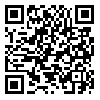Volume 8, Issue 1 (February 2021)
Avicenna J Neuro Psycho Physiology 2021, 8(1): 45-51 |
Back to browse issues page
Download citation:
BibTeX | RIS | EndNote | Medlars | ProCite | Reference Manager | RefWorks
Send citation to:



BibTeX | RIS | EndNote | Medlars | ProCite | Reference Manager | RefWorks
Send citation to:
Irani S, Akbari B, Abolghasemi A, Bakhshipour Roudsari A. Comparison of the Effectiveness of Schema Therapy and Behavioral Model-Based Diet Therapy on Emotional Adjustment, Body Image, and Weight Loss among Obese Individuals with Nervous Overweight. Avicenna J Neuro Psycho Physiology 2021; 8 (1) :45-51
URL: http://ajnpp.umsha.ac.ir/article-1-241-en.html
URL: http://ajnpp.umsha.ac.ir/article-1-241-en.html
1- Department of Psychology, Rasht Branch, Islamic Azad University, Rasht, Iran
2- Department of Psychology, Rasht Branch, Islamic Azad University, Rasht, Iran ,: BahmanAkbari44@yahoo.com
3- Department of Psychology, University of Guilan, Rasht, Iran
4- Department of psychology, University of Tabriz, Tabriz, Iran
2- Department of Psychology, Rasht Branch, Islamic Azad University, Rasht, Iran ,
3- Department of Psychology, University of Guilan, Rasht, Iran
4- Department of psychology, University of Tabriz, Tabriz, Iran
Abstract: (3630 Views)
Introduction: Overeating and anorexia are both abnormalities in people's nutrition and diet, each of which with a number of risks.
Objectives: This study aimed to compare the psychological interventions of schema therapy and behavioral model-based regimen on emotional adjustment, body image, and weight loss among obese individuals with nervous overeating.
Materials and Methods: This clinical trial study was performed on 30 obese people with eating disorders referring to nutrition clinics in Rasht, Iran. The statistical population of this study (n=30) was selected using the available sampling method and randomly divided into two experimental groups and one control group. The control group received no treatment. Data were collected using Cognitive Emotion Regulation Questionnaire-Short Form, Young Early Maladaptive Schema Questionnaire-Short Form, and Body Mass Index. The data were gathered before and after the intervention and analyzed by covariance test.
Results: Although both interventions resulted in reduced emotional eating and weight loss in obese individuals, the behavioral model-based intervention was more effective in this regard. Moreover, regimens based on the behavioral model and emotion regulation method led to maintaining appropriate weight in obese people in the long run.
Conclusion: These findings were consistent with the results obtained from various studies. Behavioral model-based diet regimen, compared to the emotion regulation method, led to weight loss and reduced emotional eating by influencing the underlying psychological factors contributing to obesity.
Objectives: This study aimed to compare the psychological interventions of schema therapy and behavioral model-based regimen on emotional adjustment, body image, and weight loss among obese individuals with nervous overeating.
Materials and Methods: This clinical trial study was performed on 30 obese people with eating disorders referring to nutrition clinics in Rasht, Iran. The statistical population of this study (n=30) was selected using the available sampling method and randomly divided into two experimental groups and one control group. The control group received no treatment. Data were collected using Cognitive Emotion Regulation Questionnaire-Short Form, Young Early Maladaptive Schema Questionnaire-Short Form, and Body Mass Index. The data were gathered before and after the intervention and analyzed by covariance test.
Results: Although both interventions resulted in reduced emotional eating and weight loss in obese individuals, the behavioral model-based intervention was more effective in this regard. Moreover, regimens based on the behavioral model and emotion regulation method led to maintaining appropriate weight in obese people in the long run.
Conclusion: These findings were consistent with the results obtained from various studies. Behavioral model-based diet regimen, compared to the emotion regulation method, led to weight loss and reduced emotional eating by influencing the underlying psychological factors contributing to obesity.
Keywords: Body image, Diet therapy, Emotional adjustment, Nervous eating, Schema therapy, Weight loss
Article Type: Research Article |
Subject:
Clinical Psychology
Received: 2020/03/7 | Accepted: 2020/07/17 | Published: 2021/02/2
Received: 2020/03/7 | Accepted: 2020/07/17 | Published: 2021/02/2
Send email to the article author
| Rights and permissions | |
 |
This work is licensed under a Creative Commons Attribution-NonCommercial 4.0 International License. |







